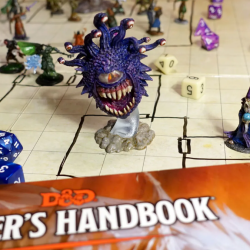Do you find yourself triggered a lot lately?
Is your flight or fight mode always on, even when you’re alone? Spending too much time as a survivor can lead one to be on constant alert, rather than a thriving, present human being. This response was needed by our ancient cavemen ancestors to survive in the deep jungles, and is still present in animals. However, most of us today are no longer faced with daily, life-threatening situations. Adrenaline junkies can indulge their addictions with ease. However, the evolved human mind and body are not equipped to handle this long-term, leading to ailments and chronic diseases.
To quote Dr. Glenn Patrick Doyle in the MindJournal…
We are not ourselves when we are triggered. We become who we think we need to be to SURVIVE. And when we are constantly being triggered, our identity can start to slip away… Because our personality and values are constantly getting hijacked by fight-or-flight reflexes.
That’s quite something, don’t you think? Leads to some real serious introspection. It might help to reflect on a few probing and revealing questions…
- When, in what circumstances and locations, am I most relaxed?
- When, in what circumstance and locations, am I most stressed?
- In my moments of inner critical dialogues, what and who triggers me more?
- Is your mind thinking constantly of the next problem to solve?
- Do you make projects out of people, or vice versa?
- Do you become unduly passive as your way of tuning out?
- Do you stay in arguments to prove you are right?
The list is endless and not relaxing in the least. What we need at these times is perspective. Will our anxieties really matter in a few hours? When we worry about our self-image and how we’re perceived, perhaps a little self-deprecating humour could help. Does the world really think as much about us as we think they do? Are we really that important that they will gossip about us for long?
Another set of coping methods is physical
Exercise, deep breathing, long walks preferably near water or nature can restore our heart rate. In ancient times, flight-or-fight response meant action — literally running away or fighting physically. So, when we exercise, we give a physical outcome to the panic, thereby letting our body and mind know that we have handled it. The poor anxious mind can now relax and pat itself, ‘whew, I saved the day again.’
Build your relaxation reflexes too
When you start to feel numb (flight mode) or panicky (fight mode), ask yourself, ‘is it really that bad? I am safe physically, medically, and emotionally.‘ Bring yourself back to the present. Maybe you have been facing tough situations over a prolonged period of time or consistent setbacks. Yet, these were in your past and this is not meant philosophically. Ask yourself this: am I the same person? Am I still in that same window of my life, or am I better equipped with the wisdom of experience? Reminding yourself that you’ve learned from past errors, and the present is different, brings confidence. A quick reflection of the past also shows that not only have you survived these instances, but have emerged to handle them better now.
Use relaxation techniques like breathing, positive affirmations over a long period of time. At the start this may feel forced, but over a period of time you can train the mind to relax, even in the midst of fight-or-flight mode.
Last, and possibly the most important
Share with friends, support groups, so they can reassure you when you are not able to. Light heartedness, validation and emotional support are the perfect antidotes provided by the community.
Featured image: Elena Smuseva / Pexels





























